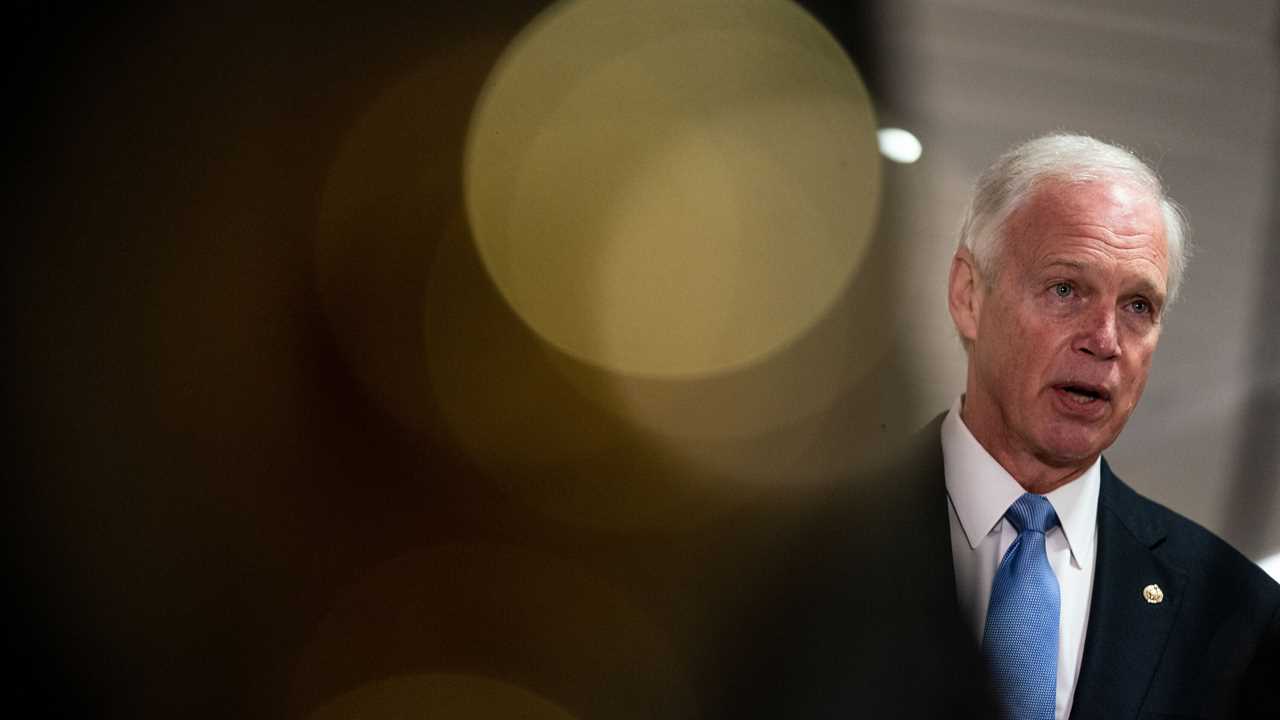
Senator Ron Johnson of Wisconsin has been on the forefront of elevating fringe theories about President Biden’s son Hunter, the coronavirus and the results of the 2020 election.
In recent weeks he has come under renewed scrutiny for claiming in a series of radio interviews in his home state that the Jan. 6 attack on the Capitol was not an “armed insurrection” and for using his time during a Senate hearing to read a first-person account that posited “provocateurs” and “fake Trump supporters” were behind the attack.
Mr. Johnson has a reputation for being among the most accessible, high-profile Republicans in Washington, regularly defending his views to the mainstream news media — something many of his G.O.P. colleagues do not do.
He spoke with The New York Times on Thursday about his theories of who was responsible for the attack on the Capitol and what he would like to see included in the congressional investigation of it. The interview has been lightly edited and condensed.
You were on the radio recently talking about how it wasn’t an armed insurrection. I was curious what the origin of that perspective was for you.
When I think armed, I think firearms. And yeah, we don’t know. I have no idea. That’s one of the questions I’ve got is, how many firearms were seen, were confiscated? How many shots were fired? I believe the only ones that were fired were from law enforcement. And I’ve said I’ll defend law enforcement for taking action. I don’t understand what the uproar is. But apparently, there’s uproar somewhere. Somebody takes offense to it.
And I would say, if it’s properly termed an “armed insurrection,” it was a pretty ragtag one. And again, I don’t dispute the destruction, or destructive capability of things like flagpoles and bats and that type of thing, but again, words have meaning.
Well, what’s your feeling about who made up the group that stormed the Capitol?
I don’t know, and I’m asking the question. I’m making no assumptions.
There are just so many unanswered questions, which seems to be kind of the basic situation in so many things I’m trying to get to the bottom of. But here we are almost two months later, and there are just basic pieces of information that are missing here.
In the Senate hearing the other day, you read the piece from The Federalist that suggested there were sort of provocateurs and “fake Trump supporters” that had designs on generating trouble from the crowd. And I wondered, do you share that analysis?
I think it’s important, if we’re going to really get the whole truth, to understand exactly what happened, we need to look at different vantage points, different perspectives.
I read that article, I think, as soon as it was published, which was shortly after Jan. 6. And I was intrigued by it. Because here was an individual that, again, I didn’t know him at the time. I actually spoke to him yesterday for the first time. But I didn’t know who he was. It just looks like he had a pretty good background. This is an instructor, focusing on this type of psychological type of warfare and that type of thing. So he seemed to be a knowledgeable observer.
And I was just fascinated by the fact that he wrote down his thoughts, about 14, 15 pages, without looking at any news. So it’s kind of an unblemished accounting. And that’s really kind of the eyewitness accounts you want to examine. I’m not saying you accept everything. You don’t necessarily accept his conclusions. I think you kind of have to take at face value what he said he saw.
Do you believe that, as the Federalist author Michael Waller wrote, that there were fake Trump protesters in the crowd?
That’s what he said he thought he saw. I think later in the article, he didn’t see any who he would have thought were fake Trump protesters, he didn’t see them engage in any violence. I think he writes that in his article. Yeah. I’m letting his testimony stand on its own. I wasn’t there.
Again, I’m drawing no conclusions whatsoever. Again, a lot of press reports are assuming, imputing all kinds of conclusions. They’re saying I’m saying things that I’m not saying at all. All I’m saying at this point in time is we need to ask a lot of questions.
I wonder why you think there is merit to giving an audience to Mr. Waller’s assertions that there were either provocateurs or fake Trump supporters in the crowd, given the lack of evidence.
I’m not questioning his veracity. I believe he’s probably telling the truth. That’s what he saw. I’m not agreeing with any conclusions. I’m not sure he’s really making too many conclusions, other than he concluded he saw four individual types of groups that stood out from the crowd.
It might be a flawed part of the evidence, but why exclude it? Just because it doesn’t necessarily tie into whatever narrative somebody else wants to tell about the day? I’m not interested in the narratives, I’m interested in the truth.
There’s been a lot of talk among some of your Republican colleagues in Congress about antifa or Black Lives Matter being involved in instigating what happened. Do you share that belief?
It doesn’t really seem like that was the issue. It appears, again, this is all early, I haven’t drawn any conclusions, but it appears if there was any preplanning by groups, it was white supremacist groups, like the Proud Boys or the Oath Keepers, that type of thing. That’s what it appears.






